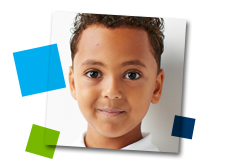Focusing on Your Child’s Mental Health
Amber Brandt
Amber Brandt
Amber is a StoryBrand certified copywriter and mom. Her goal is to create engaging articles that educate and inspire.
Articles by Amber
-
Five Important Conversations to Kick Off a New School Year
Published: Jun 25, 2024
-
4 Ways to Combat the Summer (Learning) Slide
Published: Jun 11, 2024
-
First Day of School: Tips for a Smooth Start
Published: May 09, 2024
-
Healthy and Warm Food Ideas for Cold Days
Published: Mar 19, 2024
It’s no secret the pandemic has significantly affected the well-being of children and families. In fact, a study conducted by Health Resources and Services Administration found that between 2016 and 2020, the number of children ages 3-17 diagnosed with anxiety grew by 29 percent, and those with depression by 27 percent. Even without the pandemic, many families have experienced changes and losses over the past few years that have taken a physical or emotional toll. You may have even noticed some of these changes within yourself, or a child you love.
Maybe you’ve found yourself wondering if your child’s behavior is just “normal kid stuff” or a symptom of something more. According to Mayo Clinic, here are some common “warning signs” you should look out for:
Maybe you’ve found yourself wondering if your child’s behavior is just “normal kid stuff” or a symptom of something more. According to Mayo Clinic, here are some common “warning signs” you should look out for:
- Persistent sadness that lasts two weeks or more
- Withdrawing from or avoiding social interactions
- Hurting oneself or talking about it
- Talking about death or suicide
- Outbursts or extreme irritability
- Out-of-control behavior that can be harmful
- Drastic changes in mood, behavior, or personality
- Changes in eating habits
- Loss of weight
- Difficulty sleeping
- Frequent head or stomach aches
- Difficulty concentrating
- Changes in academic performance
- Avoiding or missing school
- Talk to your child’s pediatrician. The first place to go with your concerns is their medical doctor. Your family pediatrician can help put you in touch with the resources that make the most sense for your family.
- Talk to your child’s teacher, school administrators or counselors. Reach out to the educators closest to your child and discuss any concerning behavior you observe home, hear about from school or with friends. Early identification is key.
- Check in with close friends, relatives, or other caregivers to see if they’ve noticed changes in your child’s behavior.
- Educate yourself
- Consider family counseling
- Ask your child’s mental health professional for advice on how you can respond
- Enroll in parental programs designed to support parents of children facing a mental illness.
- Look for ways to have fun with and encourage your child



